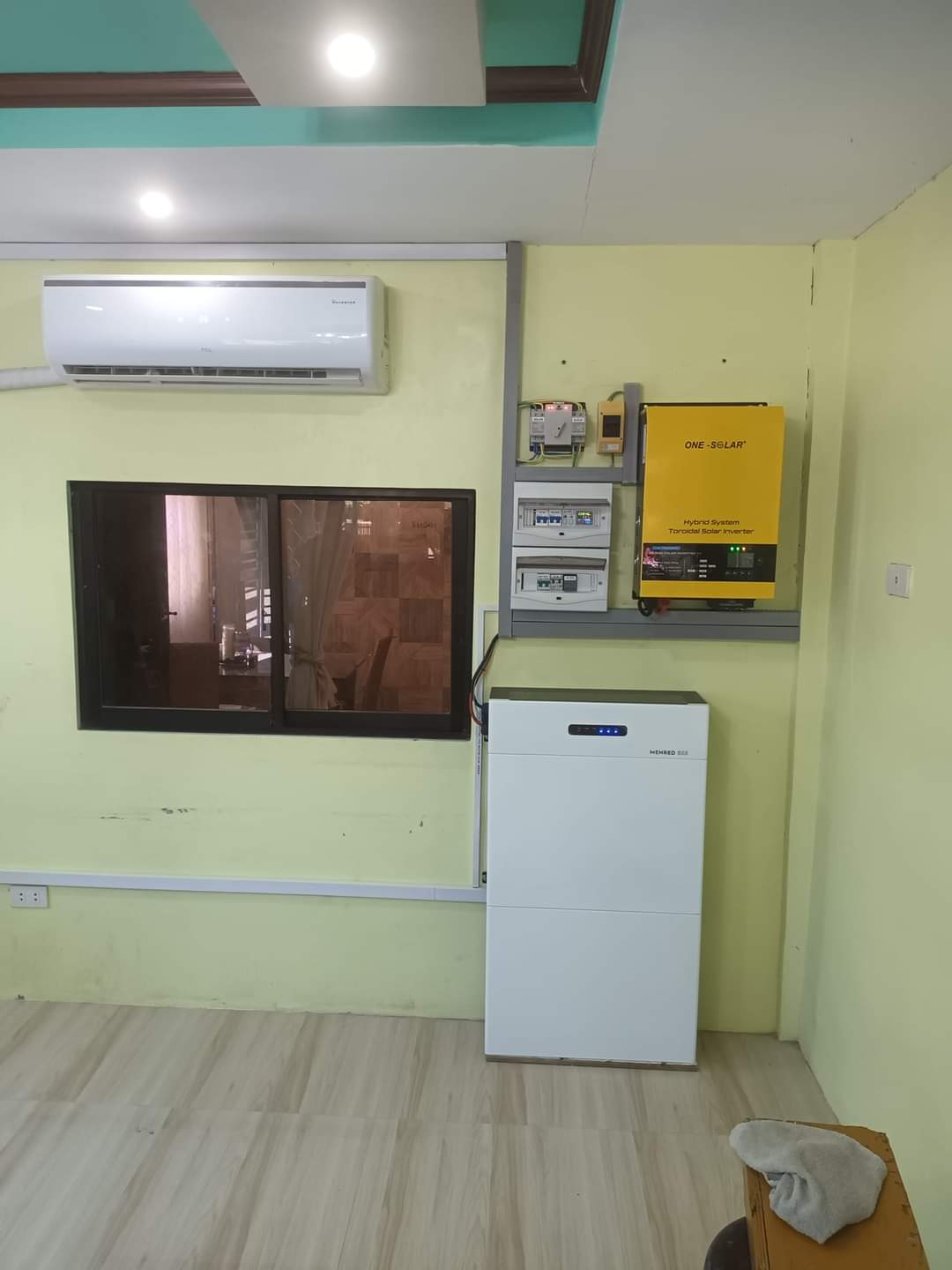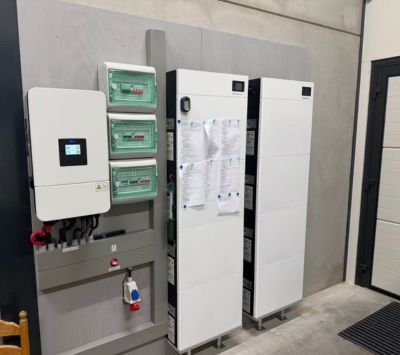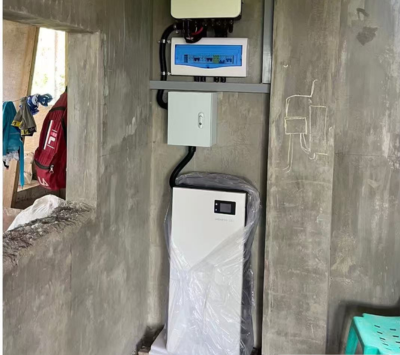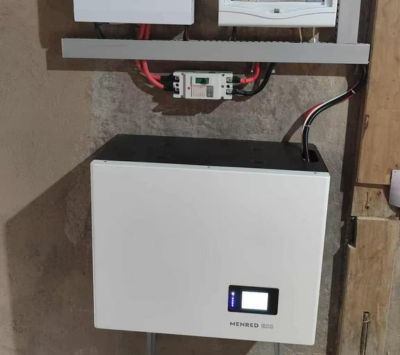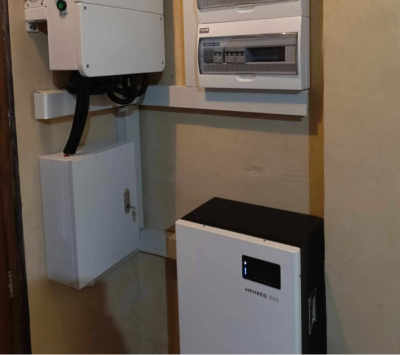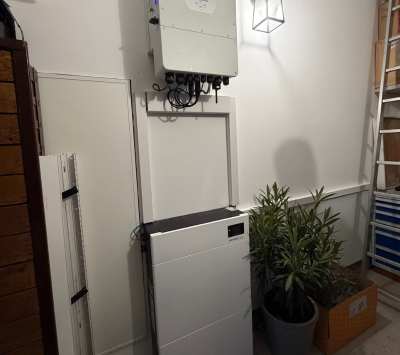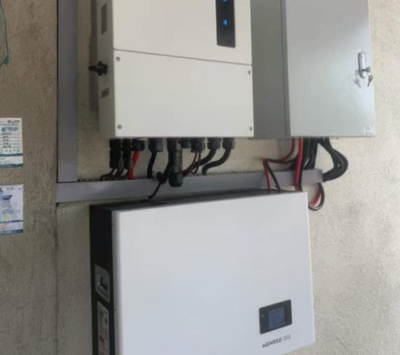The Advantages of Using Lithium Batteries for Solar Systems: Why They Outperform Traditional Options
As the demand for renewable energy solutions grows, solar power systems have become an integral part of reducing carbon footprints and achieving energy independence. However, the effectiveness of these systems largely depends on the type of battery used for energy storage. Among the various options available, lithium batteries have emerged as the superior choice for solar systems. This article delves into the advantages of using lithium batteries for solar systems and explains why they outperform traditional battery technologies such as lead-acid batteries.
1. Higher Energy Density
One of the primary reasons lithium batteries are preferred for solar systems is their higher energy density. Energy density refers to the amount of energy a battery can store relative to its size or weight. Lithium batteries, especially lithium iron phosphate (LiFePO4) variants, offer significantly higher energy density compared to traditional lead-acid batteries. This means they can store more energy in a compact and lightweight design, making them ideal for residential and commercial solar systems where space may be limited.
For instance, a typical lithium battery can store the same amount of energy as a lead-acid battery while occupying only about half the space. This is particularly advantageous for homeowners looking to integrate solar storage without compromising living or storage space.
2. Longer Lifespan
Another compelling advantage of lithium batteries is their extended lifespan. While traditional lead-acid batteries typically last between 500 to 1,000 cycles, lithium batteries can last over 6,000 cycles at 95% depth of discharge (DoD). This longevity translates to a lifespan of 10 to 15 years or more, depending on usage patterns.
The longer lifespan of lithium batteries reduces the need for frequent replacements, resulting in lower long-term costs and less environmental waste. For solar system owners, this means a more reliable and sustainable energy storage solution that can withstand years of charging and discharging without significant performance degradation.
3. Superior Depth of Discharge (DoD)
Depth of discharge refers to the percentage of a battery’s capacity that can be used before it needs recharging. Lithium batteries offer a much higher DoD compared to lead-acid batteries. While lead-acid batteries typically allow only 50% of their capacity to be used without causing damage, lithium batteries can safely discharge up to 80-95% of their capacity.
This higher DoD means that lithium batteries provide more usable energy, which is particularly important for solar systems where maximizing energy efficiency is crucial. Homeowners and businesses can utilize more of the energy they store, reducing the need for oversized battery banks and further lowering costs.
4. Faster Charging Speeds
In solar systems, the ability to recharge batteries quickly is critical, especially during periods of limited sunlight. Lithium batteries have a distinct advantage in this area due to their faster charging speeds. Unlike lead-acid batteries, which require slow charging to prevent damage, lithium batteries can handle high current inputs, allowing them to charge rapidly.
This faster charging capability ensures that solar systems can store energy efficiently even during short periods of peak sunlight, maximizing energy capture and storage. Additionally, the quick recharge time is beneficial during power outages, allowing homeowners to restore backup power faster.
5. Lightweight and Compact Design
The lightweight and compact design of lithium batteries is another reason they outperform traditional options. Lead-acid batteries are bulky and heavy, making them less practical for installations where weight and space are concerns. In contrast, lithium batteries are lightweight and easy to transport, install, and maintain.
This compact design is particularly advantageous for off-grid solar systems and portable solar applications, where mobility and space efficiency are essential. Whether it’s a home solar system, an RV setup, or a remote cabin, lithium batteries provide the flexibility needed for various applications.
6. Enhanced Efficiency
Lithium batteries are known for their superior efficiency, with charge/discharge efficiencies of around 95-98%. In contrast, lead-acid batteries typically offer efficiencies of only 70-85%. The higher efficiency of lithium batteries means that more of the energy generated by solar panels is stored and available for use, minimizing energy losses.
This enhanced efficiency is especially beneficial in regions with limited sunlight, where maximizing energy capture and storage is critical. By reducing energy losses, lithium batteries contribute to a more effective and reliable solar power system.
7. Low Maintenance Requirements
Traditional lead-acid batteries require regular maintenance, such as checking water levels and cleaning terminals, to ensure optimal performance. Lithium batteries, on the other hand, are virtually maintenance-free. They do not require water refilling or frequent inspections, making them a hassle-free solution for solar energy storage.
The low maintenance requirements of lithium batteries save time and effort for homeowners and businesses. Additionally, the reduced need for maintenance minimizes the risk of user error, ensuring that the solar system operates smoothly and efficiently.
8. Wider Operating Temperature Range
Lithium batteries are designed to perform well across a wide range of temperatures, making them suitable for various climates. They can operate efficiently in temperatures ranging from -10°C to 50°C, whereas lead-acid batteries are more sensitive to temperature fluctuations and may suffer from reduced performance in extreme conditions.
This wider operating temperature range ensures that lithium batteries can reliably store energy in both hot and cold climates, providing consistent performance year-round. For homeowners and businesses in regions with harsh weather conditions, this reliability is a significant advantage.
9. Environmentally Friendly
Lithium batteries are more environmentally friendly than traditional lead-acid batteries. Lead-acid batteries contain toxic materials such as lead and sulfuric acid, which pose environmental and health risks if not disposed of properly. In contrast, lithium batteries, particularly lithium iron phosphate (LiFePO4) variants, are considered safer and less harmful to the environment.
Additionally, the longer lifespan of lithium batteries reduces the frequency of replacements, resulting in less waste and a smaller environmental footprint. As the world moves toward sustainable energy solutions, the environmental benefits of lithium batteries make them a more responsible choice for solar systems.
10. Compatibility with Advanced Technology
Lithium batteries are highly compatible with modern solar system technologies, including smart inverters and battery management systems (BMS). Advanced BMS technology ensures that lithium batteries operate safely and efficiently by monitoring parameters such as voltage, current, and temperature.
This compatibility with advanced technology enhances the overall performance of solar systems, providing features such as real-time monitoring, remote control, and automated safety mechanisms. Homeowners and businesses can benefit from greater control and visibility over their energy storage systems, ensuring optimal performance and safety.
11. Scalability and Flexibility
Lithium batteries offer excellent scalability, allowing users to expand their energy storage capacity as needed. This flexibility is particularly useful for growing households or businesses with increasing energy demands. Unlike lead-acid batteries, which may require a complete replacement to scale up, lithium batteries can be easily added to an existing system without compatibility issues.
This scalability makes lithium batteries a future-proof investment for solar systems, providing the ability to adapt to changing energy needs without significant additional costs.
12. Cost-Effectiveness Over Time
While lithium batteries have a higher upfront cost compared to lead-acid batteries, their long-term cost-effectiveness makes them the better choice for solar systems. The extended lifespan, higher efficiency, and reduced maintenance requirements of lithium batteries result in lower overall costs over time.
When considering the total cost of ownership, including replacement and maintenance expenses, lithium batteries often prove to be more economical than traditional options. For homeowners and businesses looking to maximize their return on investment, lithium batteries offer significant financial advantages.
MENRED ESS Customer Installation: LFP.6144.G2 in Action
Conclusion
Lithium batteries have revolutionized energy storage for solar systems, offering unmatched advantages in terms of energy density, lifespan, efficiency, and environmental impact. Their superior performance and reliability make them the ideal choice for homeowners and businesses seeking to maximize the benefits of solar energy.
As the world transitions to renewable energy solutions, investing in lithium batteries for solar systems ensures a sustainable and efficient energy future. Whether you’re installing a new solar system or upgrading an existing one, choosing lithium batteries is a decision that delivers long-term value and peace of mind.

